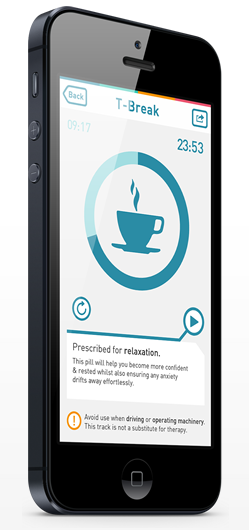The New Frontier for Drugs? Check the App Store

Cocaine, methamphetamine, and other illicit drugs may soon become a thing of the past. The new frontier in drug use appears to be the next generation of smart phone applications. In fact, the first "digital drug" has already hit the iPhone app store and it is cheap, legal, and there are no chemical traces. However, like previous waves of drugs, this one also proclaims to "unlock your subconscious and change your mind".
Called Digipill, its software developers say that it is the result of twenty years of research into the field of neuro-linguistic programming. It is the brainchild of Irish self-help author Brian Colbert. The app is free and uses "psycho-acoustics" to provide effects similar to pharmaceutical and narcotic drugs. The app comes with one free pill; users who would like more can downloaded more advanced pills from the App Store. The company says that the pills' sounds last around a half hour in duration, but the effects can persist for much longer - even, it says on its website, for a lifetime.
Its product may induce skepticism, but it touts benefits that scientists have been attempting to hone for years. "The Digipill technique has been specifically designed to help with real life issues including giving up smoking, building up confidence, and getting to sleep. The technique can even be used to approach natural highs not unlike that of some physical pills," the Digipill website reads.
Despite the lack of chemicals, Digipill does not come without a word of caution. "Do not use Digipill whilst driving or operating machinery. Some pills can have a hypnotic effect which is highly relaxing and can inhibit the high degree of concentration needed to perform these actions," the website states.
There are pills for all sorts of mental states - everything from confidence, passion, to irresistibility.
Digital drugs are not exactly new. Reports have emerged, starting in at least 2010, about I-dosing, which would pump droning music that would ostensibly make teenagers high. Experts fretted that it would become a gateway drug. Fortunately, this "trend" did not seem to be an actual widespread one.



























